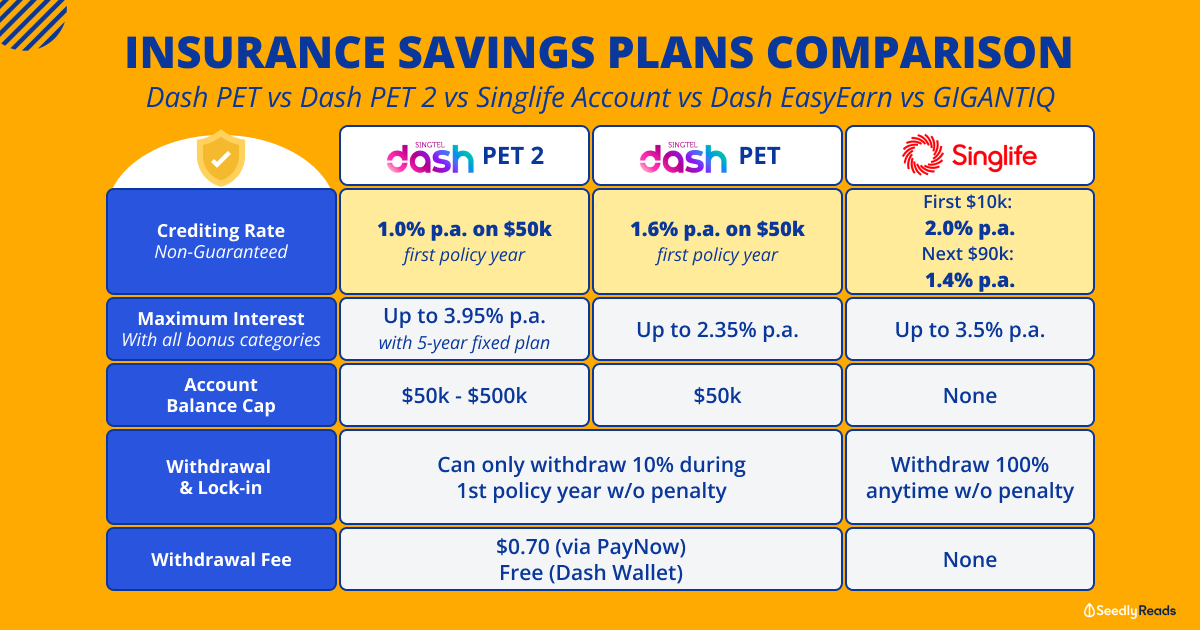Advertisement
Saxo vs IBKR vs Stashaway. Which would be the best option for my scenario?
I'm looking for some insights into Saxo vs IBKR vs Stashaway No plan on day trading but buy and hold as well as reoccurring monthly purchases (saving plan) Which one would be preferable and why?
11
Discussion (11)
Learn how to style your text
Reply
Save
First you have to decide if you want to DIY Invest or use a RoboAdvisor. Robos are simpler but less flexible and have slightly more fees involved. If you want a Robo then there are lots of reviews and posts comparing them on Seedly and other blogs.
If you want to DIY invest then that means researching what to buy and also executing the trades yourself. Saxo vs IBKR is down to cost which depends on your investment amounts and the app/website differences which you can research.
Personally I am using both, a Robo to invest my SRS funds (which I cannot manually invest in the types of products offered by robos) and also DIY investing my own cash to save on the fees.
Reply
Save
Shengshi Chiam, CFA
03 Feb 2020
Personal Finance Lead at Endowus
IBKR user here. If you are planning to invest consistently, definitely go ahead with interactive bro...
Read 1 other comments with a Seedly account
You will also enjoy exclusive benefits and get access to members only features.
Sign up or login with an email here
Write your thoughts
Related Articles
Related Posts
Related Products

Interactive Brokers
4.0
39 Reviews
$0
MINIMUM FEE
Market Spread
TRADING FEES
Custodian
STOCK HOLDING TYPE

Saxo Markets
4.5
961 Reviews

StashAway
4.7
1295 Reviews
Related Posts
Advertisement








Yes, Matt is right.
You should contemplate well.
First: can You DIY managing?
Second: fees, fees, fees.
Third: ultra longterm (discipline?)
The automatic saving plans are good for discipline, but not essential, particularly when the broker commission fees approach zero (as already in th U.S.).
The lower the fees the less important frequent (monthly) buys.
For issue #1 above: it is not so difficult, however risk always will accompany You.
I feel that retail investors should abstain from: single stocks, options, leveraged-inverse products, commodities, mutual funds/unit trusts.
Concentrate for investing on ETFs that are large (AUM) and cheap (TER), so You already have super diversification.
The only thing You need zmto consider then: which types (global, countries, sectors, REITs).
Fg or starters ETFs of MSCI World
and SP500 are ideal. In reality the main problem is not the buying date/price (which nobody could predict) but holding the investment longterm, even when the market crashes (as it will surely again and again). You need a lot of discipline to not sell but wait some but not many years often (!) for recovery. I attach longterm chart of MSCI World and SP500, where you see several crashes, with full intermediate term recovery. Of course past results are not always predictive for future returns.
There is a lot of talk about a 'bond risk' particularly corporate bonds.
Formerly excellent (AAA) rated government bonds were seen as a standard for lowest risk investments. Currently this had changed, the former stability possibly isn't there anymore, today because the yields are so low. You even have to pay (!), i.e. negative nominal returns, to own highly rated bonds. I feel that under current circumstances physical gold should be the substitute for bonds as to stability (however: the relative cost of small gold investments is high; the gold price currently also, backdrop possible).
bye, good luck!